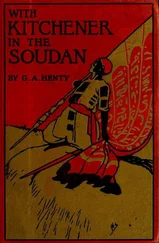Susan Jones - A Girl of the North. A Story of London and Canada
Здесь есть возможность читать онлайн «Susan Jones - A Girl of the North. A Story of London and Canada» — ознакомительный отрывок электронной книги совершенно бесплатно, а после прочтения отрывка купить полную версию. В некоторых случаях можно слушать аудио, скачать через торрент в формате fb2 и присутствует краткое содержание. Жанр: foreign_prose, foreign_language, на английском языке. Описание произведения, (предисловие) а так же отзывы посетителей доступны на портале библиотеки ЛибКат.
- Название:A Girl of the North. A Story of London and Canada
- Автор:
- Жанр:
- Год:неизвестен
- ISBN:нет данных
- Рейтинг книги:5 / 5. Голосов: 1
-
Избранное:Добавить в избранное
- Отзывы:
-
Ваша оценка:
- 100
- 1
- 2
- 3
- 4
- 5
A Girl of the North. A Story of London and Canada: краткое содержание, описание и аннотация
Предлагаем к чтению аннотацию, описание, краткое содержание или предисловие (зависит от того, что написал сам автор книги «A Girl of the North. A Story of London and Canada»). Если вы не нашли необходимую информацию о книге — напишите в комментариях, мы постараемся отыскать её.
A Girl of the North. A Story of London and Canada — читать онлайн ознакомительный отрывок
Ниже представлен текст книги, разбитый по страницам. Система сохранения места последней прочитанной страницы, позволяет с удобством читать онлайн бесплатно книгу «A Girl of the North. A Story of London and Canada», без необходимости каждый раз заново искать на чём Вы остановились. Поставьте закладку, и сможете в любой момент перейти на страницу, на которой закончили чтение.
Интервал:
Закладка:
Just then Mr. Archer appeared at the companion door to breathe the air. He was writing a paper on the intestines of salmon and grayling. The young man turned to him and said:
“Miss Archer compares our hearts to the engines.”
“A very good way,” murmured the father.
The young man left them and went to play poker; they were an unsuitable pair. Mr. Archer came over to Launa, who turned quickly to him.
“Father, I heard you talking to Mrs. Montmorency that day on the Lethe – about Mr. Harvey – was it true?”
Mr. Archer frowned.
“What did you hear?”
“Something about – a squaw and a child.”
“It was quite true about the squaw and the child,” he answered slowly.
“Ah!” she exclaimed with a little gasp. “Then a man can think of two women at the same time.”
Then he turned and looked at her.
“Men are very brutal.”
“You said he was thinking of marriage?”
“He is.”
She turned her face away from him, for his kind, penetrating look hurt her, and just then she needed him to be cross to her.
“Why do you ask me these questions, child?”
“Because it seemed so strange to me – I could not understand him.”
“Merely strange and not brutal? Nothing to you? Well, you hardly knew him, Launa.”
“Nothing to me,” she repeated, and her father returned to his writing.
The young man with anticipations saw his departure, and hastened to talk to Launa. He was singularly anxious to realise the pleasure of Miss Archer’s society; she was quite original.
“You look pale,” he said, with solicitude.
“Do I?”
“And worried. As if someone were dead.”
“Some one is dead.”
“Relations of yours? Cheer up. Wait until you get to London.”
“And then?”
“Then? Oh, you can have a good time. You can have the best of good times in London – the very best – and forget everything disagreeable, too. I give you my word, it is just like morphia. When I am in a hole, and feel down on my luck, I go to town.”
“Is that the fog? I think I should not like the after effect of morphia.”
“Fog?” he asked. “No, it isn’t fog, and yet it is fog, too; it deadens the brain. When someone threw me over, you bet I felt bad. I went up to town and forgot for a week. I did, really.”
“A week! It lost its effect in a week, so quickly?”
“Well, she wrote then and forgave me, and I hadn’t done anything wrong; she flirted. But she took me back, and I just licked her boots.”
“But suppose she had not taken you back?”
“Then I should have lived and forgotten her; I’m hanged if I wouldn’t,” he said, with energy. “Life does it.”
“Life? – you mean time.”
“I mean living it down.”
“But suppose you could not forget? Suppose you were so fond that you thought of her always?”
“I would forget. I mean – Well, I couldn’t, you know,” he said, and laughed. “Now I’ve got her, you see, and don’t need to try. I do not mind telling you – you seem so interested, and are so sympathetic to-day – that I only forgot her when it was noisy and all that. But when I was alone and quiet – at night, you know – I was miserable. You have nothing like that to worry you, Miss Archer? It is very kind of you to take so much interest in my trouble. You won’t think of your relations when you get to town. Are they in Canada?”
“Yes.”
“And one died – a girl, I suppose? And the others want to interfere with you; they want you to be dull because they are? Relations always do that. Now, I have an aunt – she’s a caution; she thinks I ought not to marry. But I would not stand that. Have you any aunts in town?”
“No. My father has a cousin; Mrs. Carden is her name.”
“She won’t bother you, I expect. You are lucky. Your father adores you. You have plenty of money, and are young. My Aunt Maria is a – Oh, the very deuce.”
Here he launched forth into anecdotes of his relations, and Launa murmured a polite accompaniment to his reminiscences until the bell rang for dinner.
“We’ll meet after dinner, won’t we, and finish our talk? It’s very jolly,” he said. “You have such a nice voice, too.”
“You have done me a great deal of good,” she answered. “Time is all one wants.”
“And life, amusement, and love,” he added softly, with a glance at her, which, considering the state of his feelings for another lady, was unnecessarily kind.
“Leave out love,” she answered. “I am hungry.”
On deck after dinner when he looked for her she was not to be seen, so he concluded she was tired and had gone to bed, wherefore he played poker.
But Launa was not tired. She had hidden from him. His talks about his Aunt Maria had no interest for her, except when she regarded them as a narcotic, and then his musings were soothing. That evening she wanted to think and to be alone.
Her father had insisted on her drinking champagne at dinner. Mr. Archer said a voyage was exhausting, and he looked weary. He had not recovered from the surprise which his daughter’s questions had produced. Were they caused merely by curiosity – the curiosity of an ignorant girl – or by interest? Curiosity is merely an inheritance from Eve; interest is the first instinct towards a man when a woman loves him or is going to love him.
“Launa must drink champagne to-night,” he decided. “And soon we shall be in London. But why did she ask those curious questions?”
Launa took some cushions and rugs and went forward behind the boats. The steamer was surging on, the wind was rising, and the waves were breaking below with big white heads of foam. She began to think; she drew a picture of it all for herself in her mind and called herself a fool. Suppose Paul were there on the steamer, suppose he came to her with love in his eyes, and he were hers for the time – and that was it, that was what hurt – for the time, perhaps only for a time. Would she be willing to take him at the price of another woman’s shame? And to know and to remember what was between her and him, like a bar, or a hand – the warm soft hand of a woman! No, it was over. She would shut up the book. Paul was dead, her Paul, the Paul she loved – she would think of him as she did of her dead mother – sometimes. But her mother was with the angels, and Paul was alive. She shivered a little; it was cold and damp, and the swirl of the waves as the steamer rushed through them was cruel.
She resolved to begin again, to rub out the writing of the first episode of life – such a new book to her – and to make the page ready for London and fresh impressions.
When the Archers arrived in London they took a flat near the Thames Embankment, and Launa revelled in new clothes, music, and horses. Her father soon had many friends. His wee world was exciting itself about the question of bones of fish, and he flung himself with ardour into the controversy.
After some days of continual absence on his part, and loneliness on Launa’s, she went to him and said: —
“I want to know some women. I love nice women. Don’t you know some?”
He looked surprised.
“There is your cousin, Lavinia Carden; she lives in town. I will take you to see her. Her husband is dead; poor man, he never was happy. He yearned for the country and for pigs – Lavinia only appreciated bacon, and would not live out of Bayswater. A month at the seaside was all poor Carden got in the way of country.”
“I shall not like her.”
“She will give you good advice, Launa,” he said, laughing. “You don’t like that.”
Mrs. Carden lived in a semi-detached house, beyond Bayswater, far from the region of the fashionable, in the heart of cheap villadom, where twelve pennies had to make a little over a shilling. Endeavouring to save a farthing on one’s rolls or one’s fire-lighters is an absorbing occupation, and it seems to have most interest for those to whom it is immaterial whether they do save their farthing or not. Mrs. Carden had one son. When he was at home she saw what she considered life – an occasional visit to the theatre, or a dull dinner party, both reached with due propriety in a four-wheeler.
Читать дальшеИнтервал:
Закладка:
Похожие книги на «A Girl of the North. A Story of London and Canada»
Представляем Вашему вниманию похожие книги на «A Girl of the North. A Story of London and Canada» списком для выбора. Мы отобрали схожую по названию и смыслу литературу в надежде предоставить читателям больше вариантов отыскать новые, интересные, ещё непрочитанные произведения.
Обсуждение, отзывы о книге «A Girl of the North. A Story of London and Canada» и просто собственные мнения читателей. Оставьте ваши комментарии, напишите, что Вы думаете о произведении, его смысле или главных героях. Укажите что конкретно понравилось, а что нет, и почему Вы так считаете.












